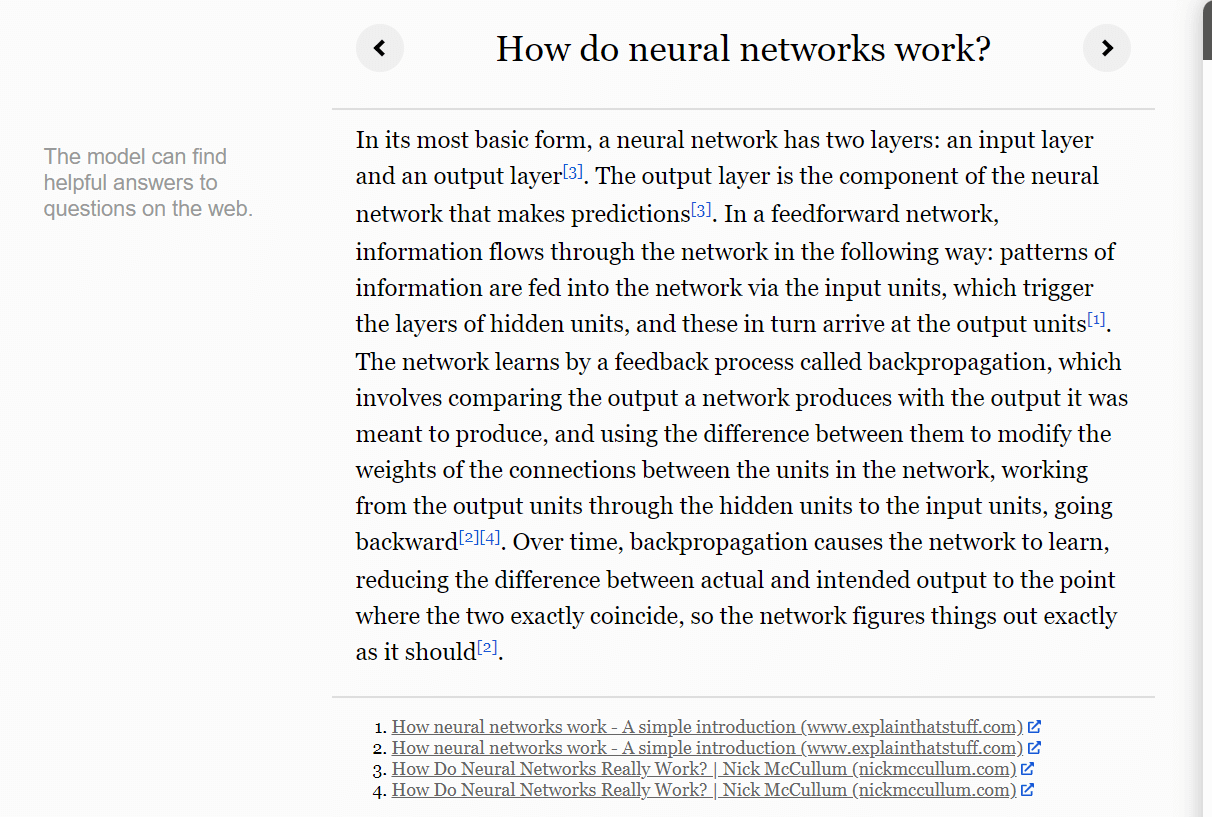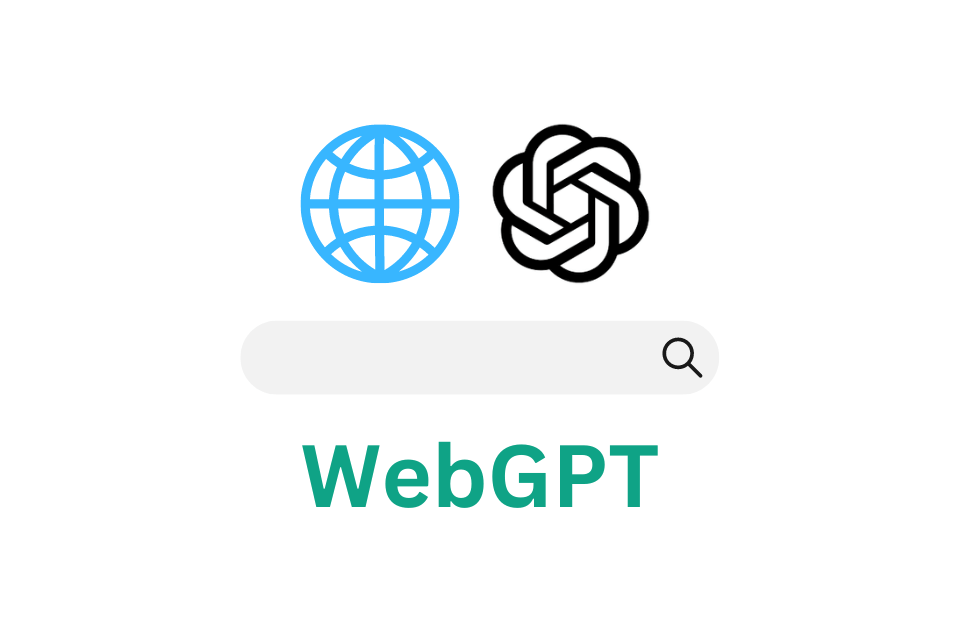WebGPT is a finetuned version of GPT-n models that seek to provide better responses to open-ended queries. It uses a web browser to gather the information that then informs its responses to user queries.
This variant of the model was developed to address GPT-3 and GPT-4’s tendency to ‘hallucinate’ information when responding to queries.
It simulates how humans research for information online:
- Submits search queries to search engines
- Reads information from webpages
- Organizes, classifies, and processes returned information
- Follow editorial links
- Scroll up and down web pages
Using this method, WebGPT is able to provide more detailed, accurate answers to open-ended questions. It can also provide contextualized information on a given topic to help users quickly find the answers they need.
How does WebGPT work?
When a user enters a query into WebGPT’s playground, it fires commands such as ‘Search’, ‘Find on Page’or ‘Quote: …’. This ensures that it collects passages from web pages which it then uses to respond to the query.
OpenAI’s browsing environment doesn’t allow for full internet access. Rather, WebGPT works by sending queries to the Microsoft Bing Web Search API and following existing links on web pages.

Companies such as Jasper (Jasper Chat), Writesonic (Chatsonic), Writecream (ChatGenie), CopyAI (CopyChat), amongst others, are already leveraging WebGPT to provide ChatGPT-powered chat interfaces that can browse the internet.
There’s also a chrome extension —WebChatGPT (Non-official) using this model to bring web browsing into the ChatGPT platform. It already has over 200,000 users.
Limitations of WebGPT
While the model is generally more likely to provide more accurate and truthful answers than GPT-3 and ChatGPT, it still poses a given level of risk. What is even worrying is that, given that responses from WebGPT have citations, people are more likely to trust them, obscuring the fact that they might be false.
By accessing the web, the model cannot tell which information is true, and which one isn’t, thus it can find it hard responding to queries with conflicting opinions online.




